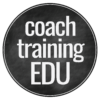[vc_row][vc_column][vc_column_text] For both Coach Training EDU and my life, Spring and Summer 2016 have been one of the most challenging yet rewarding. My understanding of resilience, what it really means, and how to cultivate it have shifted, and I want to share what I’ve learned.
For both Coach Training EDU and my life, Spring and Summer 2016 have been one of the most challenging yet rewarding. My understanding of resilience, what it really means, and how to cultivate it have shifted, and I want to share what I’ve learned.
A Challenging, and Amazing, Summer
[/vc_column_text][/vc_column][vc_column width=”1/2″][vc_column_text]In May, I started working with The University of Oklahoma to train administrators and faculty, across a dozen different departments, to be Academic Life Coaches. The project also includes working with UO’s Institute of Human Flourishing to create a coaching to flourish model. From this work and the current research, it looks like resilience is the key factor to flourishing. Thus, began a summer of research focused on resilience and flourishing. Everything seemed set in place for a beautiful summer and transition to fall.
To kick the summer off, Coach Training EDU hosted our first conference in Portland in late June. The speakers were fantastic, the feedback has been overwhelmingly positive, and we are excited to host another conference in two years, summer 2018. Overall, it was a success – but a lot of work.[/vc_column_text][/vc_column][vc_column width=”1/2″][mk_padding_divider size=”80″][mk_image src=”https://coachtrainingedu.com/wp-content/uploads/2016/08/Life-Coaching-Conference-Life-Coaching-Conference-0196.jpg” image_width=”500″][/vc_column][vc_column][vc_column_text]A few short weeks later, in mid-July, my wife and I had our third baby, a son name Julian. Our two older girls, ages 9 and 6, have been a huge help, but adding another baby to the mix makes for fun times.
11 days after Julian was born, on a Wednesday night to Thursday morning, he spiked a fever of 102 degrees. New babies aren’t supposed to have fevers, and we rushed to the emergency room at about 6am Thursday morning.[/vc_column_text][/vc_column][vc_column width=”1/2″][mk_padding_divider size=”80″][mk_image src=”https://coachtrainingedu.com/wp-content/uploads/2016/08/13886995_10208516445640931_2530297499283470748_n.jpg” image_width=”500″][/vc_column][vc_column width=”1/2″][vc_column_text]Just the day prior, Wednesday afternoon, I had led a seminar with The University of Oklahoma on resilience. To say the topic was on my mind would be an understatement. It was front and center, and the situation and idea of resilience had my full attention.
Given the massive amount of energy the conference took, then the birth of another baby, all while still running a company, I was shocked at how my instincts kicked in. The level of focus I had and that clarity of action I needed to take was astounding. It was like a switch flipped. I went from thinking “Jules is really hot, won’t nurse, we’re going in” to waking our girls and getting everyone loaded up in the car and to the hospital in under 20 minutes.
[/vc_column_text][/vc_column][vc_column][vc_column_text]Over the next four days in the hospital, Jules made it through. My wife was amazing and stayed with him the whole time. I was driving to and from the hospital with the girls, getting them to their aunt’s house, coordinating activities, and basically holding down the fort.
Where Resilience Fits In
While all of this was taking place, I was thinking about resilience, and I want to share three thoughts:
- I had originally thought of resilience as a trait, like perseverance or grit, but now I realize that resilience is: a) a combination of some traits, b) more fluid and dependent on the nature of the challenge, and c) definitely also cyclical. It is more similar to the response to a stressor or the five stages of grief. The stages of resilience might pick up where the stages of grief leave off (with acceptance). I felt a switch flip in me when I accepted the situation as it was and took responsibility to take action. I didn’t try to pretend it would be ok. It wouldn’t have been. By the time we got to the hospital, his fever was 104.
- Community is perhaps the most important part of resilience. I saw this at the Coach Training EDU conference in June. I see the strength of community happen in each of the coaching courses I lead. People who are striving to achieve something need the support of others to achieve it. There are few, if any, exceptions. In dealing with emergency rooms and ICU floors, and in the responses from our community in Portland and in the larger Coach Training EDU community, I truly saw that power of community shine through. It was beautiful to experience the love and support that came from so many different parts of our lives.
- On the other side of a crisis, the growth is phenomenal. I know I am a better version of myself for having gone through the experience. I feel more compassionate, more grateful, and oddly more at peace with the world than I’ve ever felt.
Looking Forward
I am hopeful for what the rest of 2016 holds, and I can safely say that 2016 has been the year of resilience. It truly has made me realize how deeply grateful I am for my experiences and the work I get to do in being a coach. The coaching community, people who care about others and work to hone skills designed specifically to empower and grow others, is the best. If you’re reading this, you are most likely already a part of this community. This work we do and the support we give each other matters. Thank you.[/vc_column_text][/vc_column][/vc_row]

One of the most powerful blog post. Thank you John
John thank you for all you do and being such an inspiring example of resilience!
Pingback: When Your Client Says "I don't know where to start!" - Coach Training Edu